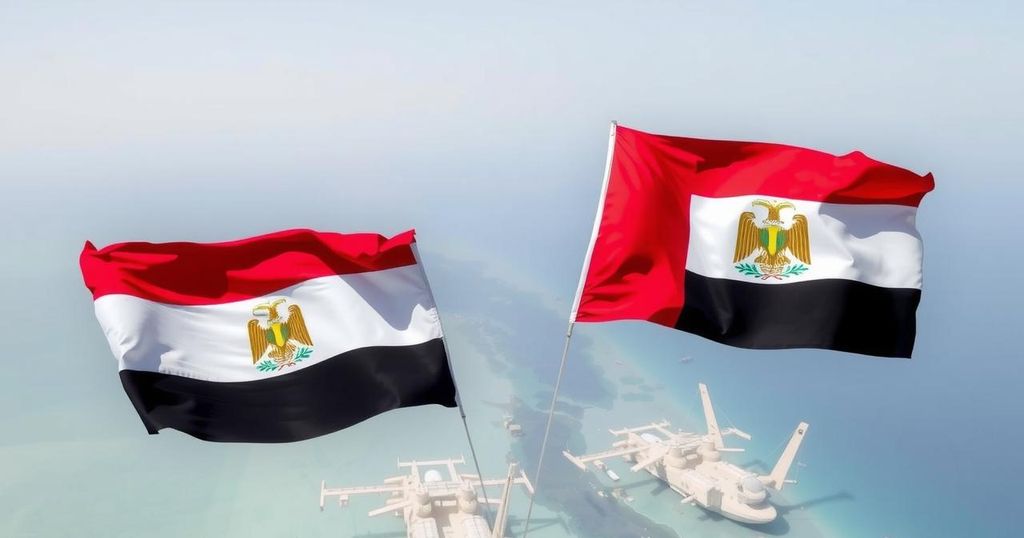Egyptian Foreign Minister Badr Abdelatty stated that access to the Red Sea should be limited to bordering nations, reaffirming support for Somalia’s sovereignty. During a joint press conference with Somali Minister Ahmed Moallim Fiqi, Abdelatty emphasized the historical ties and the commitment to strengthening bilateral relations across various sectors, including military, economic, and educational areas. Additionally, plans for an Egyptian-Somali Economic Forum were discussed, aimed at enhancing trade relations.
On Monday, Egyptian Foreign Minister Badr Abdelatty emphasized that access to the Red Sea should be limited to nations that share its borders. This assertion was made during a press conference in Cairo, where he stood alongside Somali Foreign Minister Ahmed Moallim Fiqi. Abdelatty confirmed Egypt’s commitment to respecting Somalia’s sovereignty and discussed enhancing bilateral relations across various sectors. He rejected any unilateral actions that might jeopardize Somalia’s unity.
The visit from Minister Fiqi highlighted historical ties between Egypt and Somalia, with both nations expressing a desire to strengthen their relationship further. Both Abdelatty and Fiqi affirmed Egypt’s pivotal role in supporting the Somali state’s development, with Fiqi thanking Egypt for its recent backing of Somalia’s territorial integrity. The discussions included cooperation on political, economic, military, and educational fronts.
An agreement was reached to hold an Egyptian-Somali Economic Forum in Cairo in January 2025, aiming to boost economic ties and private sector involvement in bilateral relations. Additionally, both nations are looking to enhance educational exchanges, with plans to increase scholarships for Somali students at Egyptian institutions such as Al-Azhar University.
The discussions also extended to regional security, with both ministers stressing the necessity for a strategic partnership. This partnership will encompass multiple areas, including military cooperation and the establishment of a new African Union Mission for Support and Stability in Somalia (AUSSOM). Fiqi acknowledged Egypt’s capabilities in combating terrorism and supporting state-building efforts, reiterating the importance of effective coordination under the new mission to facilitate stability in the region.
The Red Sea is a significant waterway that connects Europe and Asia, making its access a strategic concern for bordering nations such as Egypt and Somalia. Recently, there has been an emphasis on regional sovereignty and unity, particularly concerning Somalia’s stability amidst ongoing challenges. The collaboration between Egypt and Somalia reflects a larger effort to assert their rights over territorial waters while enhancing bilateral ties to address mutual concerns in political and economic spheres, particularly in the context of stability and development within the Horn of Africa.
In conclusion, the recent discussions between Egypt and Somalia underscore a mutual commitment to sovereignty and regional security. Both nations aim to foster a strategic partnership characterized by cooperation across numerous sectors, including military, economic, and cultural fields. The emphasis on safeguarding Somalia’s territorial integrity and enhancing bilateral ties signifies a collaborative approach toward greater stability and prosperity in the region.
Original Source: www.dailynewsegypt.com






